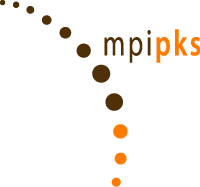
Publishing
Information on Open Access Publishing
Open Access publishing means ensuring immediate free access at the very moment of publication.Copyright of publications will remain with free licenses - such as Creative Commons. The Max Planck Society has supported initiatives for Open Access for more than ten years.
Digital Second Publication Right - §38 Abs.4 UrhG
Since 1 January 2014 authors have been able to publish their scientific contributions in collections as an electronic copy (preferably under a free licence like CC-BY). This relates to all scientific publications, based on a research process that has been at least half funded by public resources (DFG, BMBF, EU or other third-party financed projects, as well as non-university research facilities).
Which publications?
All scientific contributions in periodicals and collections which appear twice a year. It covers in particular scientific articles in trade journals.
What can I publish?
You are able to publish the accepted manuscript version available for free in the internet (open access), for example in a repository of the library or on the institute website.
When can I publish?
1 year after first publishing.
What restrictions are there?
1) Second publications are not for commercial purpose
2) Only the accepted manuscript version may be published, unless the publisher allows the use of the publisher's layout.
3) The right applies from 1 January 2014 and concerns only publications after this date.
4) If there are more than one author, all of them have to agree the publication.
5) The original publication must be identified.
Who has the right of usage?
The second publication is only possible if the right of usage will be transferred to a privileged author or to a free available repository. This transfer should be made in writing. A further publication e.g. in another repository is not possible.
What are the restrictions of publisher's contract?
You always have the right for the second digital copy if the publication fulfils the legal requirements, independent of the publisher's contract.
Does the right also apply publishers from abroad?
Yes, if the digital copy will be published in Germany (German website, repository etc.), independent of nationality and residence.
Sources/ further information (german only)
Bruch, C.; Pflüger, T. (2014): Das Zweitveröffentlichungsrecht des § 38 Abs. 4 UrhG – Möglichkeiten und Grenzen bei der Anwendung in der Praxis, Zeitschrift für Urheber- und Medienrecht, 58 (5), S. 389-394.
URL: http://epic.awi.de/35491/1/ZUM.pdf
FAQ zum Zweitveröffentlichungsrecht / Schwerpunktinitiative „Digitale Information“ der Allianz der Wissenschaftsorganisation. 2015
URL: http://www.allianzinitiative.de/de/handlungsfelder/rechtliche-rahmenbedingungen/faq-zvr.html
ScienceOPEN
For 2015 the Max Planck Society have signed an agreement with ScienceOPEN that will allow authors affiliated to MPG as members of one of its 82 institutes and research facilities unlimited free publication of posters and research articles.
ScienceOPEN is an open access provider with integrated research and scientific communication platform.
For this they aggregate open access articles of all disciplines from different source like PubMed Central and arxiv and make them searchable. Furthermore, integrated network functionalities enabling the set up of personal profile and private groups to collectively work on a joint manuscript draft together with your co-workers and collaborators, and public groups to publicly share your opinion or to discuss recent publications in your field.
ScienceOPEN offers the options to publish original scientific publications (ScienceOPEN Research) or posters (ScienceOPEN Posters). Hereby they follow the concept of Open Peer Review: all reports and comments relating to the article will be published. The authors have the possibility to publish revised versions. All publications are licensed under Creative Commons license CC-BY.
If you want to benefit from this option, the MPI author must be the corresponding author.
Further Information related to Publishing
Depending on the publishing agreement, the publisher allows the archiving of postprint, preprint etc. under different conditions.
The conditions are written in your publishing agreement or you can use the database SHERPA/RoMEO-Listing. This database provides information about Publisher copyright policies & self-archiving. Please note that the listings are not, however, legally binding. In doubtful cases, the publishing agreement prevails.
Many scientists use arxiv.org to publish e-prints like preprints or postprints.
arxiv.org is an e-print service in the fields of physics, mathematics, computer science, quantitative biology, quantitative finance and statistics with open access to ca. 997,262 e-prints.
Please don't forget to enter your preprint in our institutes Preprintlist.
Bibliometrics is one of the most important tools in research evaluation. It is a way of analysing scientific publications and their citations using quantitative methods
Most important analyses are:
Impact Factor
You can use the Journal Citation Reports - JCR of Web of Science for the identification and evaluation of the Impact Factors or similar factors.
Tutorial: Journal Citation Reports: Impact Factor
Citation Report
Citation Reports for authors or single publications can be identified and created by Web of Science Core Collection.
Tutorials: Citation Report | How to do a Cited Reference Search | Citation Alerts
